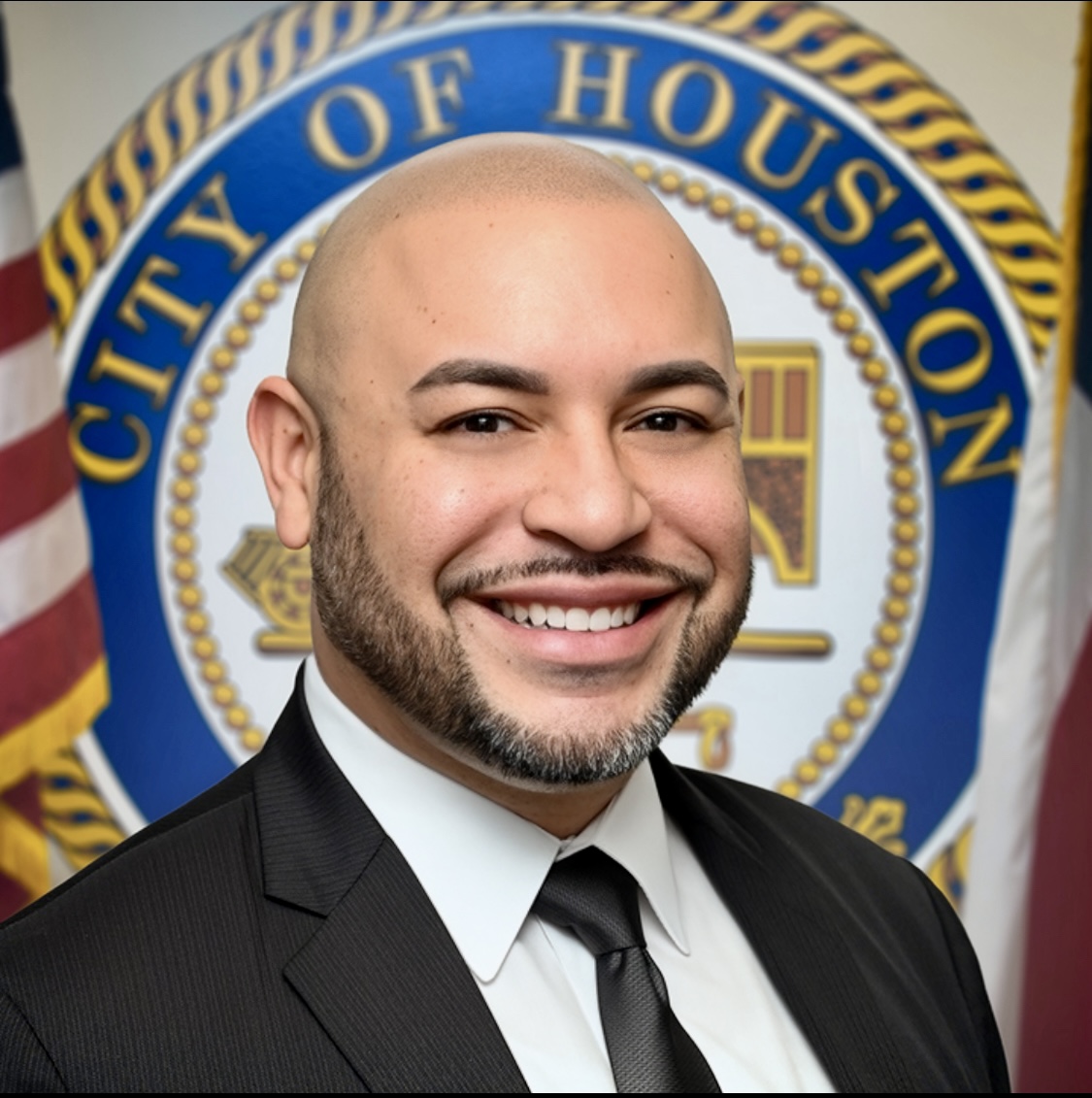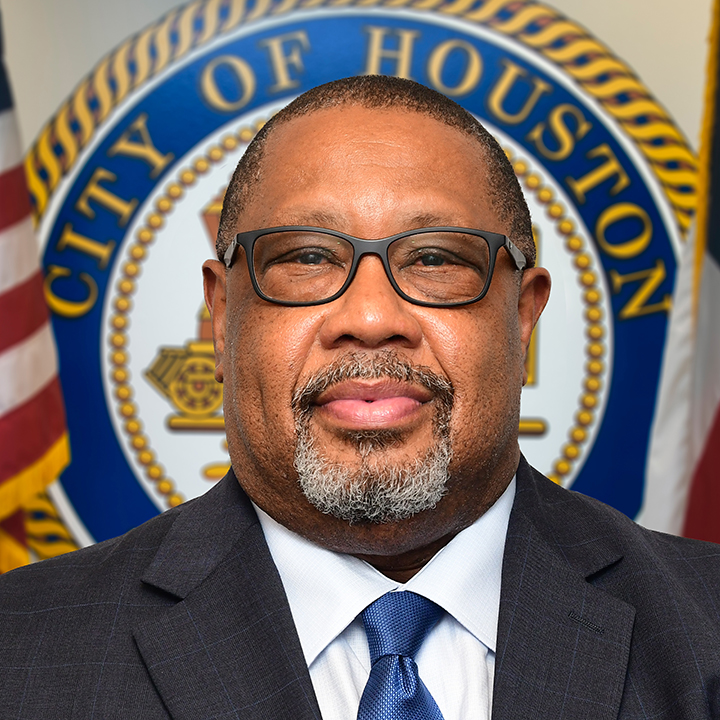The Risk Management division provides services across 25 City departments and is comprised of workers’ compensation and safety . The combined efforts of these teams help identify, analyze, administer, manage and control the city’s adverse exposure to financial, operational, and occupational safety risks and losses.

Eddie Aguilar-Hernandez
Assistant Director
A message from the HR-Risk Management Assistant Director:
"The City of Houston is committed to creating a workplace that is free of hazards, harm, unsafe work practices, and safety compromises. HR-Risk Management’s objective is to promote a culture and a workforce that values safety, accountability, and mutual regard.
Each department readily acknowledges that employees are the city’s most important asset, so HR-Risk Management collaborates interdepartmentally to reduce incidents, and the fiscal impact and loss of work productivity often associated with those incidents.
The City of Houston believes that safety is intentional—not accidental—and effective incident prevention practices enhance productivity, they don’t hinder it."
Our Vision
To become a national leader in municipal risk management.
Our Mission
To provide comprehensive risk management solutions, strategic initiatives, and continuous improvement for our clients via risk assessment, mitigation planning, collaboration, technology, and employee engagement. To effectively support our injured workforce by prioritizing prompt post-injury medical care and wage replacement payments, ongoing training and education, consistent communication, and transitional duty opportunities.
Risk Management Sections
Occupational Safety
The HR-Risk Management Occupational Safety Section identifies, assesses, and mitigates workplace hazards through data-driven programs to protect employees, property, and the environment.
Safety Professionals conduct multidisciplinary, interdepartmental work to supervise, plan, and implement a comprehensive safety program for the City of Houston. Their primary focus is to prevent workplace injuries and illnesses through:
- Collaborative strategies
- Hazard identification and elimination
- Data analysis and predictive analytics
- Promotion of a safety-centric work culture
Workers’ Compensation
The HR-Risk Management Workers’ Compensation Section provides medical and wage replacement benefits to employees who become injured or ill as a direct result of their employment.
WC Coordinators serve as liaisons between the injured employee, their department, and the Workers’ Compensation Third-Party Administrator (TPA) throughout the recovery process.
Key responsibilities of WC Coordinators include:
- Managing disability/return-to-work documentation
- Ensuring accurate, timely salary continuation payments
- Proactively communicating with assigned departments
- Submitting statutory employer forms to TPA Claims Examiners
- Requesting Council Action for classified employees needing extended leave
Senior Staff

Bobby Hawkins
Senior Division Manager

William Paul
Staff Analyst

Autumn Savoy
Administration Manager

Cory Warden
Safety Manager

Eric Travis
Safety Manager

Felicia Douglas
Administration Manager

Stanley Tucker
Safety Manager

Yolanda Shaw
Administration Manager

Krystal Durant
Administrative Specialist

